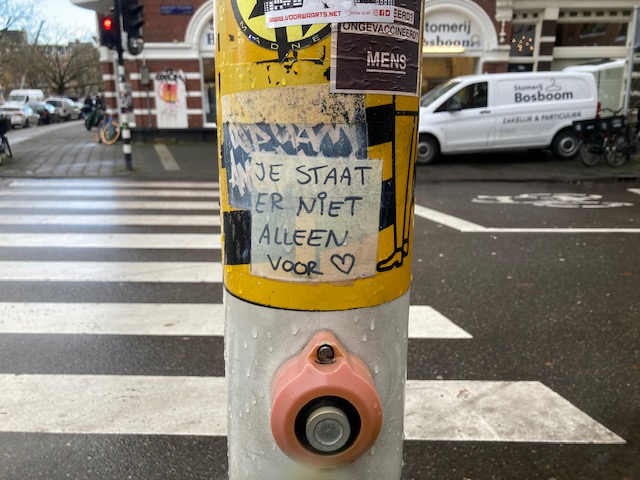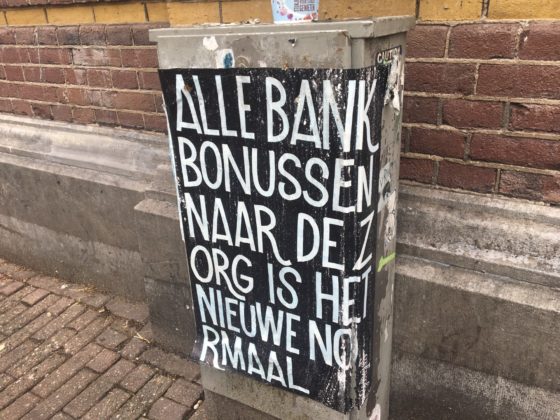The big election issues: healthcare and health insurance

The Netherlands goes to the polls on October 29 to elect a new government. We asked you what issues you wanted us to cover, and healthcare was one of the top five.
Of all the subjects debated in the election campaign so far, healthcare has emerged as one of the most controversial. Much of the discussion centres on how several parties plan to pay for extra defence spending – by cutting spending on health.
The VVD, D66, SGP, CU and JA21 have all said they want a freeze on adding new treatments to the basic healthcare package, which is determined by the government. Critics say this would lead to patients being denied new treatments which could, for example, cure their cancer or other chronic illnesses.
D66 took the hardest hit, and party leader Rob Jetten was forced to deny saying he wanted a halt. Instead, he said, the party would look critically at treatments that are already covered and remove items that are ineffective or unproven, to free up budgetary space for new drugs and methods. This is largely what is done at the moment.
Several parties want to bring in a sugar tax and to tax e-cigarettes, but preparing for a new pandemic, such as coronavirus, hardly merited a word.
GroenLinks-PvdA: boosting spending on healthcare
GroenLinks-PvdA is, according to the CPB analysis, the only party prepared to increase the healthcare budget. It also wants to halve the current own-risk element in healthcare to €170 per year and add dental treatment and contraceptives back into the basic insurance policy.
The party wants to rein in the power of pharmaceutical companies by tightening subsidy rules, making drug pricing more transparent and shifting from competition to cooperation in healthcare, with one insurer per region coordinating services and offering simpler basic health insurance policies.
It aims to make the Netherlands less dependent on medicines produced outside Europe by bringing essential drug production back to the continent. It also wants to reduce health inequalities through prevention, healthy food, affordable sports facilities and better mental health support, particularly for young people.
Abortion will be removed from the criminal code and the right to abortion enshrined in the constitution, while euthanasia will also be taken out of the criminal code. Carers will be entitled to paid care leave, with expanded rights for short-term leave.
Older people should be able to live independently for as long as possible, supported by community-based care and more nursing home places when needed. The party also plans to introduce a tax on e-cigarettes.
PVV: pledging to crack down on healthcare fraud
The PVV wants to abolish the €385 own-risk charge and freeze health insurance premiums. Dental care, the manifesto says, should return to the basic health insurance package.
The party wants to preserve regional hospitals, with intensive care, emergency and maternity units protected from closure or downsizing due to financial issues. It says the government should step in to support struggling hospitals.
Older people should have access to small-scale care homes and more nursing home places, while informal carers will be rewarded with a “carer’s bonus” — a tax break for those providing at least eight hours of unpaid care per week. The PVV also wants to cut red tape and management layers, boost staffing flexibility, and introduce a bonus for part-time nurses who take on extra work.
The party pledges to crack down on fraud, which it says costs €10 billion a year, with fines reinvested in healthcare. It also promises tougher action against aggression towards healthcare staff, more domestic production of medicines to prevent shortages, and faster reimbursement for expensive treatments.

D66: decriminalising euthanasia and legalising soft drugs
D66 plans to cut red tape, boost pay and autonomy for healthcare professionals, and expand training grants for nurses at both higher and vocational levels. The €385 annual excess charge will remain but will not increase, and fees will go up for long-term care. Essential medicines should again be produced in Europe, contraception and the HIV prevention pill PrEP will be free, and annual dental checks will return to the basic health insurance package.
The party says older people should be able to live independently in small-scale housing and social neighbourhoods, with more support for carers, including young carers and short-term respite care.
Abortion and euthanasia will both be removed from the criminal code and explicitly protected in the constitution. The party also supports legal assisted dying for those who feel their life is complete, broader euthanasia rights for people with psychiatric illness or dementia, and faster access to end-of-life care through dedicated expertise centres.
D66 wants a realistic, health-focused drugs policy by legalising and regulating soft drugs and XTC to take production out of criminal hands, improve quality control and reduce health risks. The party also plans to introduce a tax on sugar and a tax on e-cigarettes.

JA21: a freeze on healthcare spending
JA21 wants to freeze the healthcare budget and allow for inflation in wages and fixed costs by making cuts elsewhere. It wants to increase the own-risk element in healthcare to €440 and stop adding new treatments to the current health insurance package.
Patients would have free choice of doctor and more care delivered at home through telemonitoring, teleconsultations and other digital tools. Ambulance services would take a larger diagnostic role to reduce unnecessary A&E visits, and waste would be cut by reusing medicines, currently worth around €100 million a year, and limiting the growth of high-cost drugs.
Older people would see the return of small-scale care homes with on-site facilities as well as better home monitoring to help them live independently, but they would have to pay higher fees.
The party also wants to cut VAT on sport, restore free preventive measures such as vitamin D and shingles vaccines, and make school swimming compulsory. It supports existing abortion and euthanasia laws but opposes any expansion of euthanasia eligibility.

CDA: more prevention, less red tape and a sugar tax
The Christian Democrats say solidarity must remain the basis of Dutch healthcare, with care that is “accessible, affordable and nearby” for everyone. They want stronger cooperation between local GPs, nurses and welfare services, and concentration of complex treatments in specialist centres.
The CDA supports keeping the basic insurance package for proven effective care. It opposes lowering the compulsory deductible, favouring smaller payments per treatment and more support for people with chronic illnesses or disabilities.
The party remains against euthanasia for people who feel their life is complete, saying support and meaning should come first. It backs the current abortion law as a careful balance between choice and protection of unborn life.
The CDA also wants more focus on prevention, recognition for informal carers and less bureaucracy for healthcare staff. It opposes profit-driven healthcare and plans to introduce a tax on sugar and on e-cigarettes.

VVD: focus on freedom of choice and prevention
The VVD says it plans to keep healthcare affordable and sustainable through prevention, personal responsibility and freedom of choice. It wants to keep the annual own-risk element in healthcare at €385 and freeze the basic health insurance package.
The VVD wants to promote healthy living, with more attention to healthy school meals, smoke-free environments and responsible marketing by food producers. Local councils will be allowed to consider health in licensing decisions, and the NVWA will get greater powers to curb the illegal sale of flavoured vapes. The party will bring in a tax on e-cigarettes.
The party also wants to close health gaps between men and women. It will strengthen the National Strategy for Women’s Health, expand research into female-specific conditions such as endometriosis and adenomyosis, and require all medical studies to include sex-based data.
The VVD says abortion is a woman’s right and supports permanently ensuring safe, accessible abortion care. GPs will be allowed to prescribe the abortion pill, and abortion may be removed from the criminal code once safeguards are in place. The party also supports the right to euthanasia under strict conditions and supports extending embryo research from 14 to 28 days to improve fertility care.
Other parties on the basic health insurance package
NSC, SGP, CU and Volt are all against plans to halve the own-risk element in healthcare (currently €385), as proposed by the outgoing government. Volt wants to increase it to €440 a year, while the BBB wants to cut it to €170.
The CU and Volt also want to increase the own contributions paid by people requiring long-term care.
Earlier in this series:
Immigration, racism and discrimination
Income and the cost of living
Thank you for donating to DutchNews.nl.
We could not provide the Dutch News service, and keep it free of charge, without the generous support of our readers. Your donations allow us to report on issues you tell us matter, and provide you with a summary of the most important Dutch news each day.
Make a donation